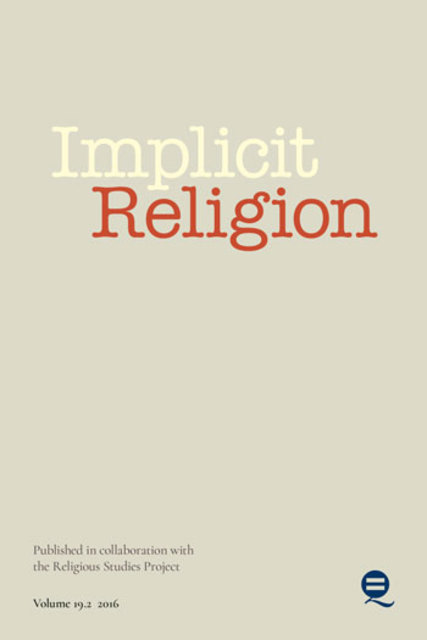An Implicit Religion of Control: Corporate Mindfulness Meditation Programs

FULL TEXT ACCESS: Complete Collection and Theory, Method & Special Topics Collection: click DOI (at right) All other collections, chose from links (at right) identifying specific collections
Full description
"Mindfulness," or the practice of focusing one's conscious awareness on the present moment, has become increasingly popular in mainstream culture over the last decade. Commensurate with its widespread acceptance in secular culture, mindfulness programs have been adopted by a number of large corporations, albeit largely stripped of mindfulness's religious ties to its roots in Buddhism. This article theorizes some of the ways mindfulness programs reinforce neoliberal ideologies that valorize individual self-surveillance and self-discipline through employees' bodies and minds. By promoting greater self-awareness, calm, and focus, such programming is also homologous with greater (employee) productivity and (company) profitability. As a kind of implicit religion, mindfulness may hold special appeal for workers who seek meaning and purpose beyond what is currently provided by their current workaday lives. The article, therefore, makes the argument that mindfulness, a kind of implicit religion, in these settings is conducive to perpetuating neoliberal ideologies.
- typeImage
- created on
- file formatjpeg
- file size13 KB
- container titleImplicit Religion
- creatorGeorge Sanders
- issn1743-1697 (online)
- issue21.1
- publisherEquinox Publishing Ltd.
- publisher placeSheffield, United Kingdom
- rightsEquinox Publishing Ltd.
- volume
- doi
We use cookies to analyze our traffic. Please decide if you are willing to accept cookies from our website. You can change this setting anytime in Privacy Settings.
